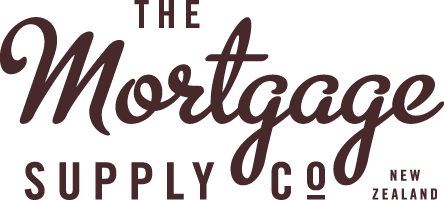As a first-time home buyer, it is only natural to have a million and one questions about the process. With common questions ranging from how big should my deposit be? Can I use my KiwiSaver? How do I apply for a loan and what additional cover can I get?
While there is a raft of information in the marketplace regarding these common question, Lenders Mortgage Insurance (LMI) is a little-known cost that may come with purchasing a house.
What is LMI?
Lenders Mortgage Insurance, or LMI, is an insurance premium that many mortgage lenders require first-time buyers to pay.
Lenders generally require LMI’s to be paid if an individual is applying for a loan with less than 20% deposit. It's important to know, LMI isn’t insurance for the borrower. Instead, it’s insurance that protects the lender in the event that you are unable to maintain your mortgage repayments.
What will it cost me?
Your LMI fees will vary depending on what bank or mortgage institution you choose. However, in most cases, there are two common ways you can pay an LMI. Firstly, a set dollar amount, known as an LMI fee. Secondly, a certain, predetermined percentage of your loan amount, known as an LMI charge.
How will I pay an LMI?
LMI costs are either paid as a one-off upfront fee once your loan is approved or it can be added onto the lifetime amount of your loan.
Word of warning, if you decide to add the LMI onto your total mortgage amount, it will increase the amount of interest you are paying as well. Which, will result in you not only paying a lot extra over the lifetime of your loan but also a few more years onto your mortgage.
Clearly, LMI is a large additional cost, potentially several thousand extra, so make sure you factor this in when you decide how you’d like to pay it off. To avoid paying extra and extending your loan, consider saving extra to pay for the fee upfront.
You’ll pay for an LMI if?
The amount you are required to pay will be determined by the below risk factors:
- The size of your deposit.
- Whether you are a first-time home buyer.
- Whether the house you are buying is intended to be your primary residence or an investment.
- Your lending institution.
- Your employment status, i.e. are you self-employed or not.
Additional things to consider
It is important to remember, that an LMI is not the same as mortgage protection insurance. An LMI is protection for your lending institution against the risk of you falling short on your repayments.
While, mortgage protection is an optional feature, which protects you and your family in the event you aren’t able to cover your repayments, in the event of sickness, death or unemployment. However, LMI will not be optional if you are seeking a loan with a deposit of less than 20% for first-time buyers or 30% for an investment property.
The best way to get around paying a large LMI is to ensure you have a large enough deposit available. Remember, an LMI can be a very large expense, so make sure you factor it in when you are budgeting for your dream home.
In today’s highly competitive marketplace, it is commonplace for people to rush into the purchase decision, as they don’t want to get left behind. However, this is the wrong approach to take. If the difference between you paying the LMI and saving enough to satisfy a 20% deposit, is only a few months, are you able to hold off?
Buying a house can often be a highly-confusing and stressful time, so it is important you take the time to understand what is required. Make sure you put yourself in the best position to succeed by planning carefully, seeking advice and staying within your means.
If you would like help navigating this tricky process and finding the best lender for your needs, contact us today, we would love to help you and your family secure your dream house.
CONTACT COLIN TODAY
- MOBILE
027 643 5454 - LANDLINE
09 8348682 - EMAIL
colin@mortgagesupply.co.nz
FOLLOW ME









